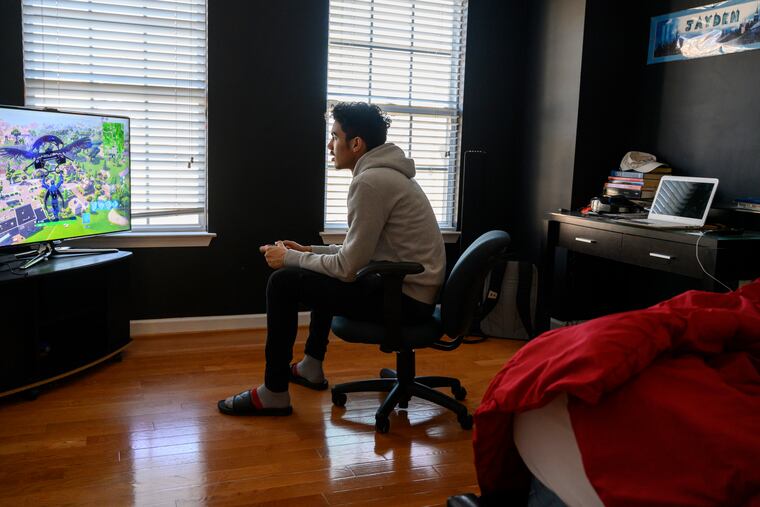Could a tax on video games help prevent school shootings? One Pa. lawmaker hopes so.
Rep. Christopher Quinn said the tax revenue would be distributed to school districts undergoing projects to improve safety, such as installing bulletproof glass, metal detectors, or security cameras.

Seeking funding for school safety measures to prevent shootings, a Pennsylvania state lawmaker is proposing a 10 percent sales tax on violent video games.
Rep. Christopher Quinn (R., Delaware), said the tax revenue would be distributed to school districts undergoing projects to improve safety, such as installing bulletproof glass, metal detectors, or security cameras.
“The crux of the bill is, I’m simply trying to make schools safe," Quinn said. “It’s about identifying a source of funding to help combat the growing violence."
But the video game industry, as well as some experts who study the impact of video games, see Quinn’s bill as misguided and potentially unconstitutional.
Researchers have said there is no link between violent video games and horrific acts of violence such as school shootings, said Patrick Markey, a professor of brain and psychological sciences at Villanova University and co-author of Moral Combat: Why the War on Violent Video Games is Wrong. Markey said his research has shown dips in violent crime when people are playing video games. The most likely explanation, he said, is that video games give teenagers something to do and “keeps them off the street.”
“So if this bill’s intention is to reduce violent crime, it really does have it kind of backwards in a way,” Markey said.
The U.S. Supreme Court struck down a California law in 2011 that prohibited the sale of violent video games to minors, framing the issue as one of censorship vs. free speech and ruling that video games are protected speech, just like movies and books.
A spokesperson for the Entertainment Software Association, which lobbies on behalf of computer and video game companies, said this week that he was confident the proposed Pennsylvania legislation would be struck down for the same reason.
“The U.S. Supreme Court made clear ... that video games are entitled to the full protection of the Constitution and that efforts, like Pennsylvania’s, to single out video games based on their content will be struck down," Dan Hewitt said in a statement.
Quinn said he was aware of the First Amendment concerns raised by the video gaming industry and would not attempt to push the bill through the House until he has a better understanding of its constitutionality.
While no other state has a sales tax specifically on violent video games, a similar bill is proposed in Rhode Island, where lawmakers say the tax would fund mental health counseling in schools.
Quinn’s bill would tax video games with Entertainment Software Rating Board ratings of “mature” or “adult only." He said it would raise about $3.5 million per year that would go into a special account. School districts could apply for grants, he said, for school safety projects. His bill has two co-sponsors: Reps. Ed Neilson (D., Phila.) and Carol Hill-Evans (D., York).
Quinn said he believes there is a link between violent video games and school shootings. The co-sponsorship memo for his bill quotes a National Center for Health Research article that says video games can “increase aggressive thoughts, behaviors, and feelings in both the short term and long term,” and can also desensitize people to aggressive behavior.
“This is a matter of trying to figure out, OK, here’s a problem, how do we try to generate some revenue that’s directly coming from the problem itself to help us offset it,” Quinn said.
Markey, who wrote an op-ed in the Inquirer responding to the bill, said research has shown that people tend to be more aggressive immediately after playing a video game — but that such behavior also applies to sports, nonviolent video games, and other competitive activities.
“Horrific acts of violence” such as school shootings, however, Markey said, are not linked to video games. While the role of video games in mass shootings has been debated, Markey said eliminating violent video games would not make anyone safer. While about 70 percent of male high school students play violent video games, Markey said, only about 20 percent to 40 percent of school shooters play them.
“The danger here with video games is, it creates a red herring,” Markey said.
Quinn said he is not trying to censor or eliminate video games, but wants to “come up with funds that can help us fund what we need for our schools.”